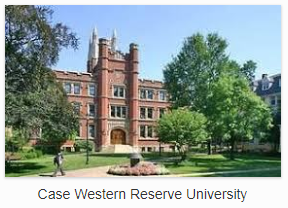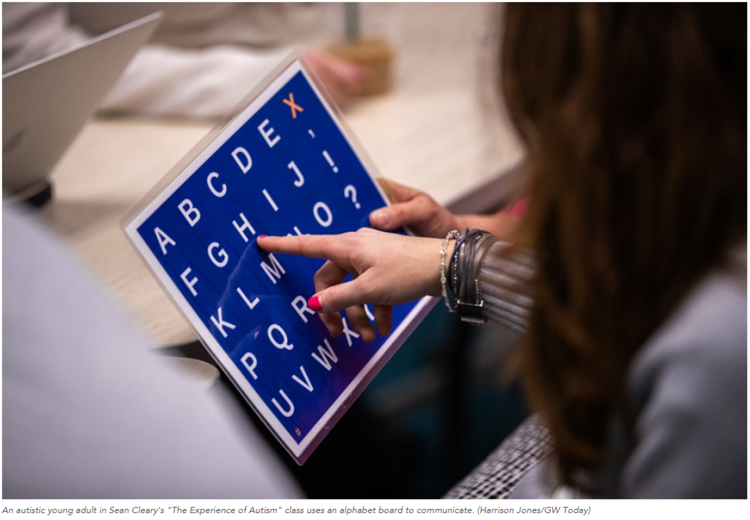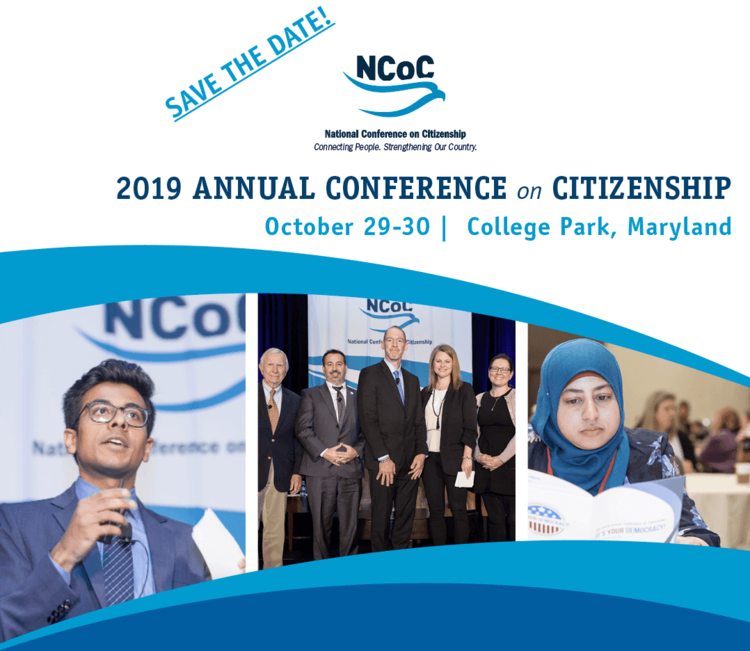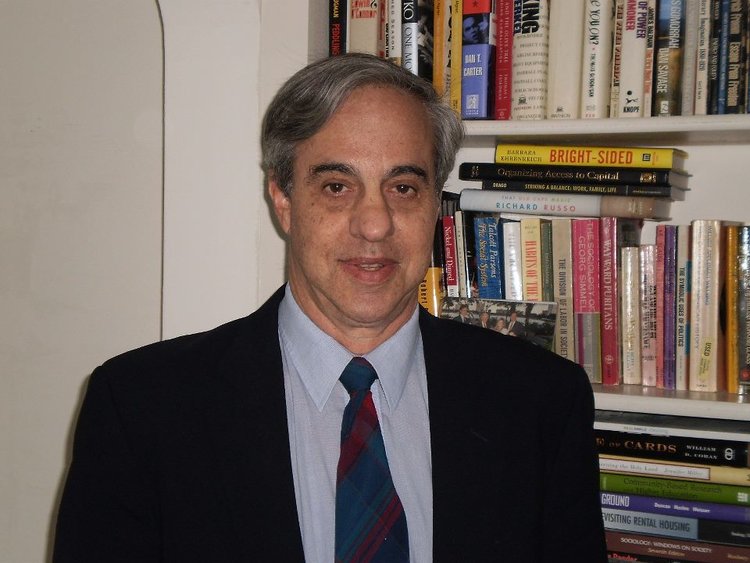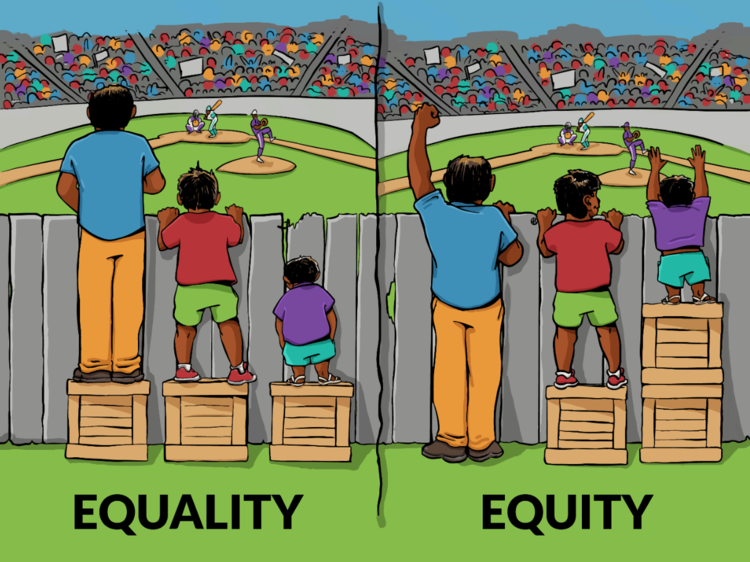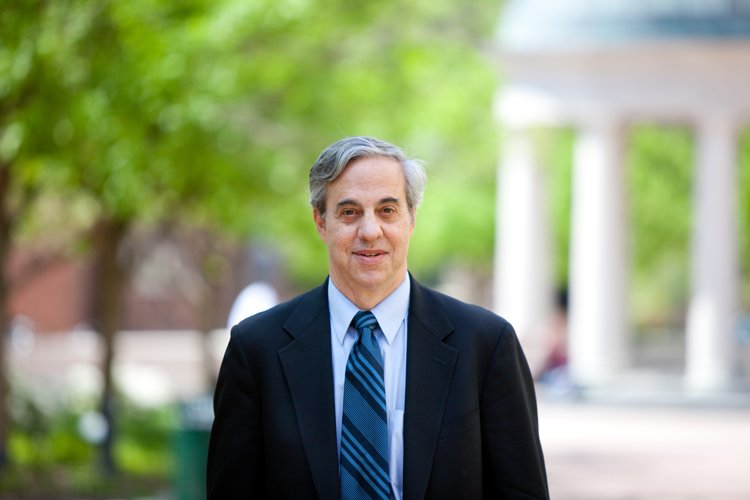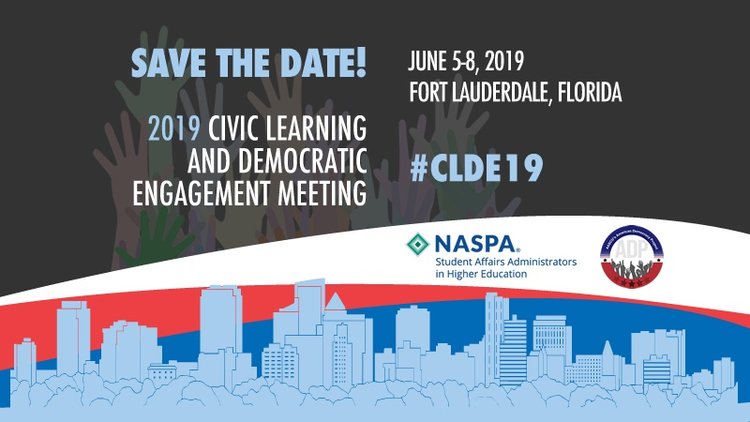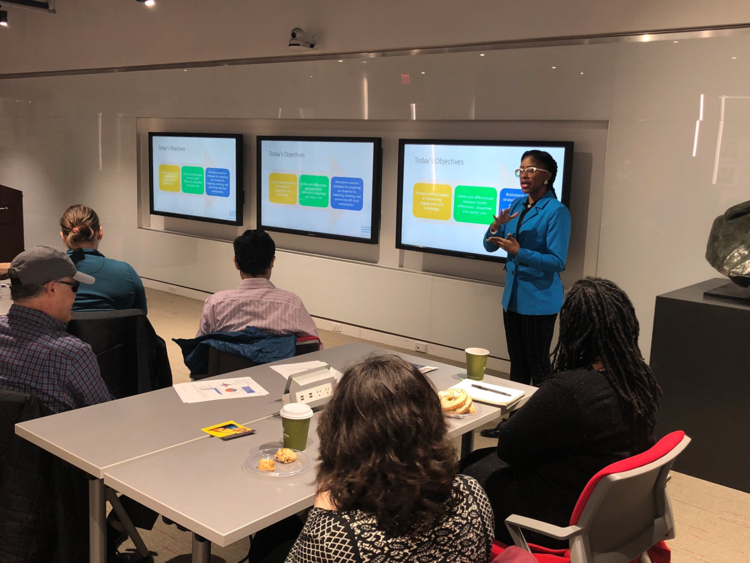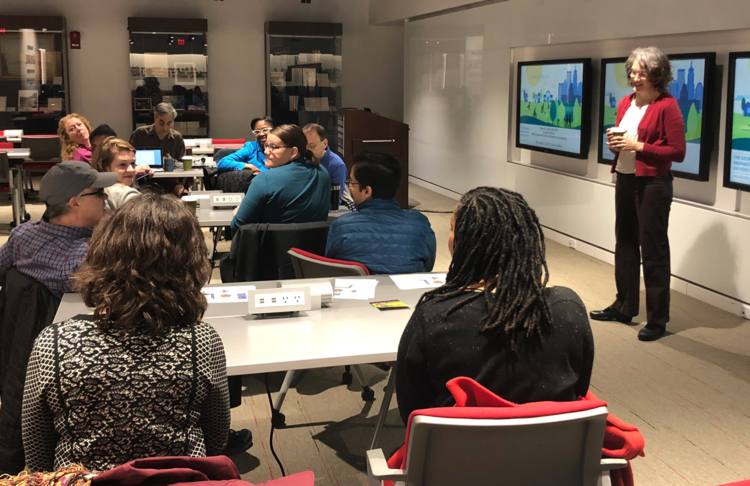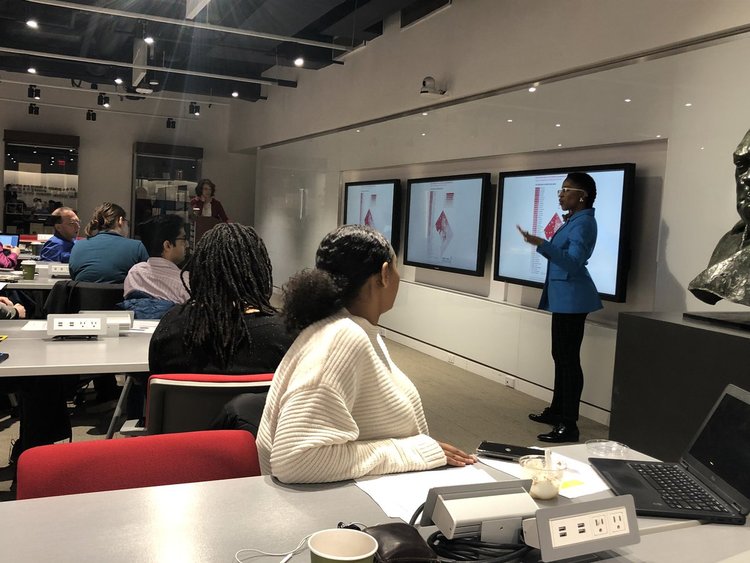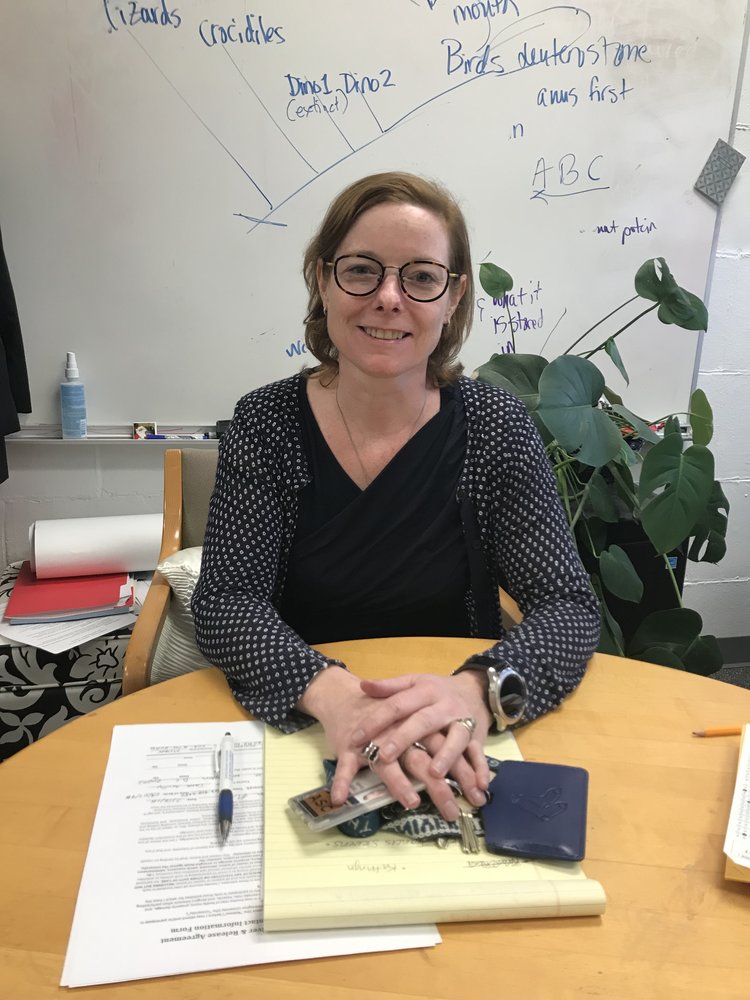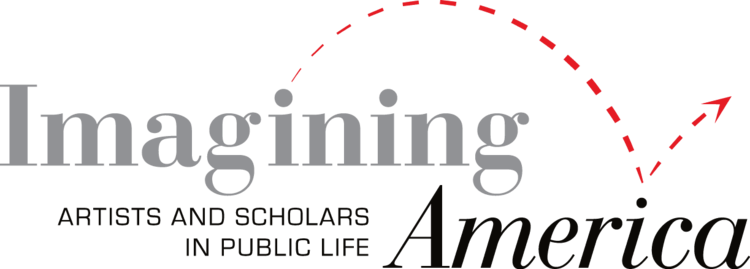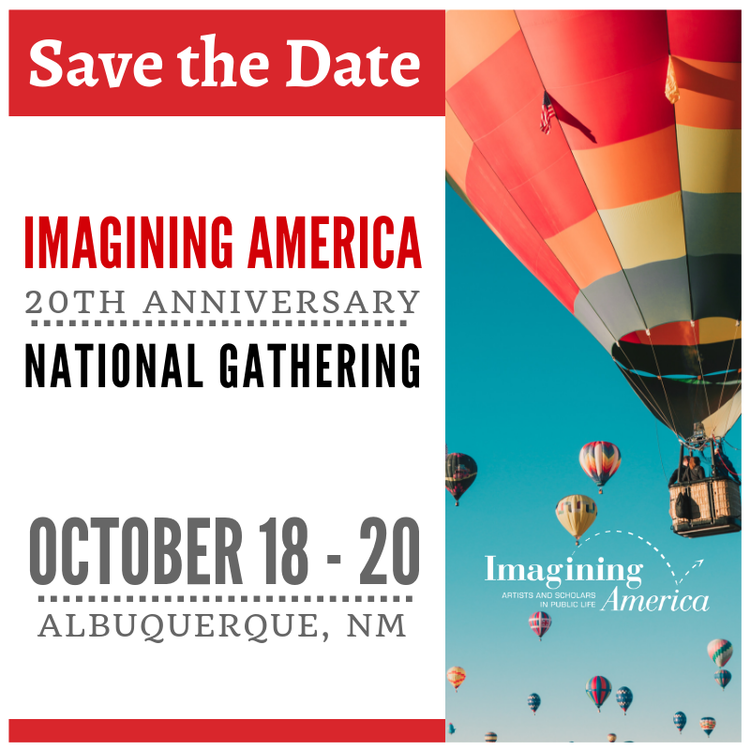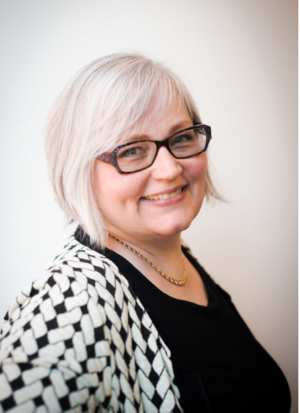
Bianca Trinidad, a scholar with Community Engaged Scholarship at the Nashman Center sat down with Dr. Anna Helm, a Nashman Affiliate from the GW School of Business (GWSB), to learn more about the possibilities and challenges of performing community-engaged work within GWSB.
Dr. Helm holds multiple roles at GW: as a faculty member in the Department of International Business, as the Director of the Center for International Business Education and Research (GW-CIBER), and as the Principal Investigator of a Teagle Foundation Grant related to the integration of Liberal Arts into the undergraduate business curriculum at GWSB.
Dr. Helm’s primary role is as a faculty member, teaching courses on international business and international marketing in particular, occasionally offering specialty courses like Foreign Market Analysis, Cultural Environment of International Business, and International Perspectives on Green Business, along with short-term study aboard consulting courses. These specialty courses pinpoint Dr. Helm’s passions: consulting, culture and sustainability. In the Green Business course specifically, she teaches sustainability from an international and service-learning perspective, engaging “glocally” with local organizations like Martha’s Table as well as international non-profits. Longer term, her overseas consulting courses focus specifically on intensive consulting projects for international clients – typically in the CleanTech or Healthcare industries – assisting innovative international start-ups in bringing their product solutions into the U.S. marketplace.
As a long-standing committee member for CoreFac, which helps develop programming for undergraduate students at GWSB, Dr. Helm strives to embody the focus of the Teagle Foundation by bringing liberal arts learning into the undergraduate business curriculum within GWSB. Dr. Helm explains that as a part of the Teagle Foundation Grant, professors from the Columbian College have developed and taught modules in their specialty areas – Arabic, German, and Korean language and culture - within her Cultural Environment of International Business course.
With a bigger global picture in mind, Dr. Helm also is the Director of GW-CIBER, a center derived from a federal Title VI Grant from the Department of Education to promote U.S. competitiveness abroad. GW-CIBER promotes the nation’s capacity for international understanding and economic enterprise by supporting research and educational programming related to international business and by conducting outreach to the corporate community.
Dr. Helm shared what she likes about her community engaged work with us and why it is important:
“I really enjoy the interaction with students and especially to see them apply their theoretical knowledge in the real world and then bring back practical insights to the classroom. The community engagement in the Business School looks a bit different from what is done in other disciplines. We tend to focus on firms mostly and our students bring their talents and skills to help those companies succeed in their markets. Personally, I have opted to work within industries that I consider important for the common good and which can help ensure a sustainable future for all, such as the CleanTech and Healthcare industries.”
And what about the mix between local and global engagement for her students?
“I want to do more, and I do think that there are a lot of ways to engage, but it’s hard to implement it while purely focusing on non-profits. My personal limitation is that I teach international business, and invariably the intimacy of getting students involved in their local business communities is not always possible. Most of the time we are working with firms across the globe, and that distance fundamentally changes the experience for both students and faculty.”
As noted earlier, Dr. Helm’s passion lies in sustainability and culture, and we wanted to learn more. To explain, Dr. Helm told us about her time growing up in Sweden and how that impacted her thinking:
“Coming from Sweden which has a much greater focus on sustainability, I was baffled at some of the wasteful behaviors that I observed when I moved to the U.S. back in the 90s. When I first arrived here as an exchange student, having never set foot in the United States before, I remember how surprised I was that my host family used disposable plates. I also noted that people took much longer shower and that they did not turn off the water while shampooing their hair. In Sweden we grew up with a love of nature and a focus on taking care of the community. As children we even had songs to sing while we were outside picking up trash. I was just a totally different world. I think those experiences are what really prompted me to focus on sustainability and clean technology. In my opinion, CleanTech is right at the intersection of Sweden’s passion for engineering and technology and its love of nature. Sweden is a world leader in high-tech innovation, and sustainability is ingrained into the whole process of the conceptualization and development of new products. On a personal level, culture is my lens to international business. To figure out how a culture is distinctive and how to define in positive ways how that culture can productively engage in international business solutions is truly fascinating.”
As always, we ask faculty to share a favorite story about their course and Dr. Helm described her shared success through the experience of a former student:
“I really take pride in the fact that students are getting real-life experiences in my courses to bring to their future careers. One student e-mailed me after her first big meeting at PriceWaterhouseCoopers with all the new recruits and told me that the people in charge had asked the new employees “Is there anybody here who knows about hypothesis-driven consulting?” which is a method that I had used in my class. My former student was so excited because she was the only one of 50 new recruits who knew what that was and had actively used the approach in a real-client consulting project. For me it was really fulfilling to know that what we do in my Foreign Market Analysis consulting course does have a positive and tangible impact on students.”
Not only does she share successes with individuals but on a greater scale, Dr. Helm’s commitment to Community Engaged Scholarship has led her to a greater appreciation of the feedback loop between academia and experience:
“I find that it is fulfilling both for the faculty and the students to work together on research projects. I personally have a small research team consisting of current students and alumni that works on my green consumer behavior research project. It is fulfilling to know that you are giving students a chance to be embedded in the academic community of the university, helping them explore career options and prepare for the real world. We get them involved and thereby help them become more thoughtful and engaged global citizens. I also think that for faculty it is important to be connected to the real world, because it is so easy to be cocooned in academia with our specialized research. To branch out and actually understand the implications of your research in the real world and having to bring back that feedback and those insights from the world outside to what you do allows us to develop a fresh perspective. There is really a kind of symbiosis there, in which you need to have that blood or pulse from the real world - to be a better teacher and researcher.”
And if students are interested in learning more about international business, marketing, or sustainability?
“I am currently teaching Foreign Market Analysis, which is my consulting course. I also teach Cultural Environment of International Business. That’s the course into which we have incorporated the Liberal Arts by bringing in faculty from the Columbian College to teach about the connection between language and culture. That course focuses on cross-cultural differences in managing and motivating people from different cultures and how to optimally lead diverse teams.”
The Nashman Center thanks Dr. Helm for sharing these insights with us. To learn more about our community engaged faculty click here, and for information on our community engaged courses click here.




